Beer and PPC. Two of my favorite things in this world. With some brief thinking, it was easy to compare the two worlds. Both the brewing and PPC campaign creation process are delicate procedures. Both processes follow a plan of execution, and one small mistake in either of the plans could mean horrible results.
This light-hearted blog will take a look at how a good beer and PPC campaigns more related than we think.
Do You Have the Proper Ingredients?
There are four main ingredients to beer that are the base to any brew you’ve tasted: water, grains (or malt), yeast and hops. A brewer might know the steps to craft a delicious beer, but if any of these four ingredients are of poor quality, the end result will suffer as well. When setting up your campaigns, make sure the four ingredients for a successful PPC campaign are carefully thought out and implemented. I’m talking about: Account Settings, Targeting, Ad Message and Landing Page.
Account Settings
Network Selection - If you’re launching a Search campaign make sure you’re selecting just the Search Network. Location - Where does your client want their ads shown? Language - Make sure every language you’re targeting has its own campaign. Bid Strategy and Budget - Confirm with your client how much they want to spend each day and how much each keyword might be worth in regards to Max. CPCs. Ad Scheduling - Are you showing up at all desirable hours of the day? Keep in mind AdWords uses the time zone that was selected when creating your AdWords account.Targeting
Search Network - Your keywords should be grouped in tight-knit ad groups and are relevant to your products and services. Display Network - Keyword, audience, topic and placement targeting are all in line with the strategy of every ad group created.Ad Message
Is your ad text or descriptions relevant to your users’ search queries? Remember relevancy is to what the user searches for and not your keywords. Do your ads have a voice that connects with your target audience? Have you created as many ad extensions as you can to help the user find what they need as soon as possible (as well as help your ad rank)?Landing Page
Is your landing page relevant to the user? Again, relevancy is to the user’s search query and not the target keyword. Does your landing page reiterate everything you said or promised in your ad message and possible ad extensions? How is the user experience of the landing page? Will people know what action you want them to take on the site? In the end it all comes down to getting conversions.Don’t even think about launching your campaigns until you have these four ingredients in order. But once you do, it’s time to move on to the next step in the PPC brewing process.
Brewing - Steps to perform right before or right after launch
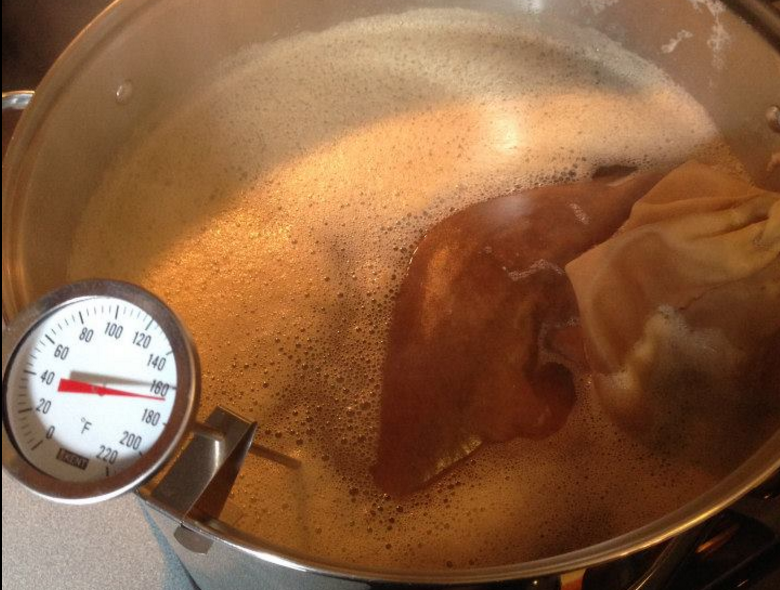
It’s campaign launch time. This is when PPC brewers combine all of our ingredients together to start the journey to a converting campaign. While the brewing is going on, brewers aren’t standing around doing nothing. There’s still work to be done. So as my PPC ingredients start working together, I like to think of all the ways I can be proactive on the account to have the smoothest start to a campaign as possible.
The first thing I like to do is monitor my analytics. Huge spikes in certain areas of an account early on are usually signs. If I’m seeing keywords that immediately racking up a lot in costs, but giving back no ROI, then it’s okay to make some adjustments. Vice versa if I see a certain keyword or ad group doing amazing from the first few days, then I’ll make the necessary CPC adjustments.
Another proactive step I perform is to add as many negatives as possible right at launch. Look at all of your broader keywords and ask yourself, “What possible search terms could trigger my keywords?” For example, I had a client in the past who made and sold headcheese. It was easy to assume that Google could close variant match that to “cheesehead” because the client is from Wisconsin, and Green Bay Packers fans wear these yellow foam hats you’ve seen before if you’re a football fan. So proactively adding “cheesehead” and other Packers terms as a negatives prevented a lot of irrelevant traffic from wasting our spend early on in the campaign. However if you honestly can’t think of too many negatives right at launch, monitor your search terms closely from the beginning.
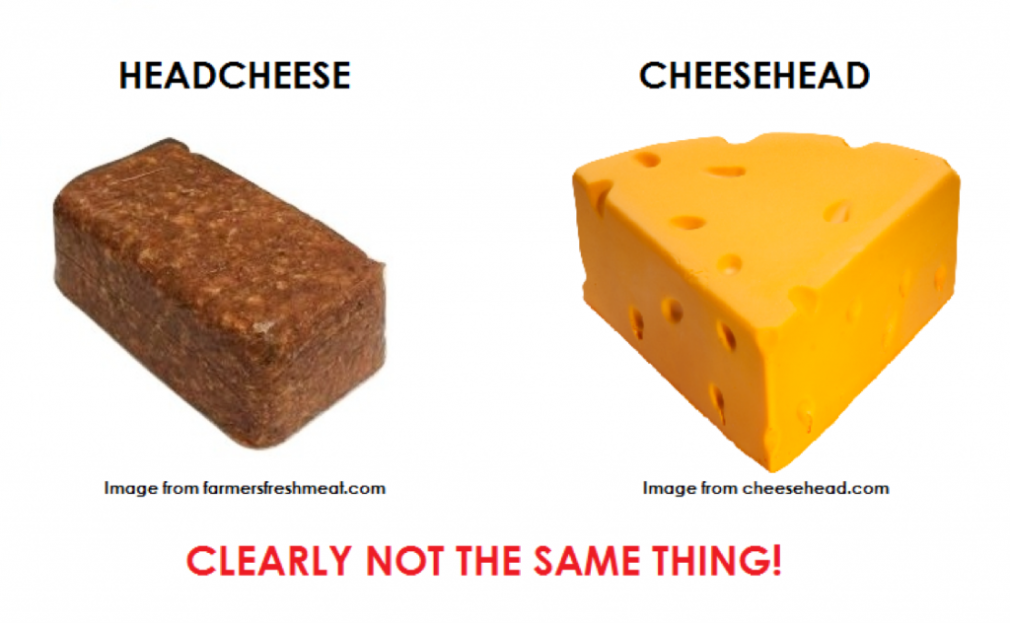
Another thing I like to do before launch is start collecting audiences in AdWords or Google Analytics. Whether it’s certain pages on the site or predetermined visitor behavior, we can start collecting all the non-PPC visitor data from our pages to be ready for remarketing or RLSA campaigns. Here are a few audiences I like to create right off the bat.
Viewed Product but Didn’t Convert - I can go back and remarket to these users with the exact product they looked at to remind them we have what they want. Added Product to Cart but Didn’t Finish Order - This audience will allow advertisers to focus their ad message on urgency to People Who Have Already Converted - Hopefully your goals have unique thank you pages that you can use to create this audience. Add these to your remarketing or RLSA exclusion lists. It can be incredibly annoying to see ads from a company following you around when you just bought their product or service. Pages with High Amount of Visits - If these pages are important to your business, create them as new audiences to remarket to all the users who didn’t initially come to your site from PPC. Watched My Videos on YouTube - If your video marketing strategy is solid, you can use this audience to help nurture people who still may be early in the buying cycle. Stayed on my Site for Less than 5 Seconds - This remarketing audience can be created in Google Analytics, and should also be added to your exclusion lists. People who bounce right away are not a relevant audience so stop wasting impression share and clicks on this low-return bucket.As the data continues to pour in, I can assess and prioritize which remarketing campaigns should be set up first when the time is right. See which
Fermentation (Let your campaigns sit for a bit to collect enough data to test)
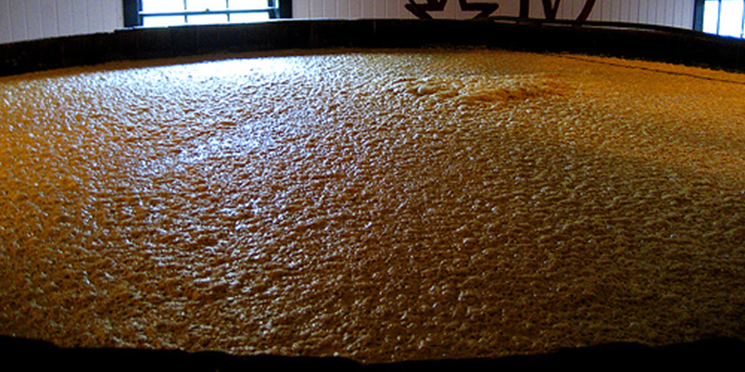
When I’m brewing a new beer recipe I get anxious. I can’t wait to see if the end result is a success, but you can’t rush the brewing process. Yes it’s okay to make some changes right after launch, but you shouldn’t be constantly optimizing every aspect of your accounts. You have to let it sit until it’s ready for consumption. This is just like the waiting period you need to take after launching a campaign.
Just like a brewer has to wait for the yeast to start turning the wort into alcohol, you need your users to interact with your ads and landing pages to give you the information needed to make proper optimizations. Whether I’m launching a new campaign or am testing elements of my account that are already active, I always need time to make sure the results I’m seeing are a true trend instead of a one-time occurrence. That amount of time you should wait is going to vary on how much traffic your campaigns are getting. Here’s one example of a set of data I saw after a recent campaign launch for a niche, B2B client.
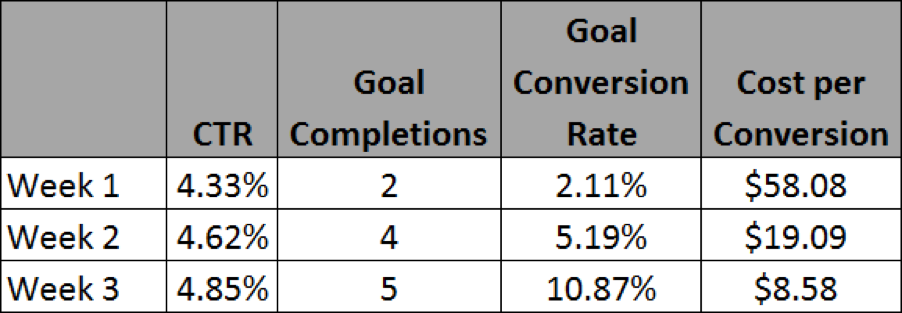
After one week, I wasn’t too happy with the results, but I didn’t panic. I didn’t go on the account and start optimizing every component like crazy. I needed more time and more data. Once the weeks go on you can see that the account improved. Yes I checked in on the account, but I didn’t make any changes. By the time Week 4 hit we knew which areas we can start optimizing. If I started changing everything immediately I would have missed out conversions from campaigns that were initially struggling, but turned out to be solid campaigns.
Packaging, Distribution and Branding - Are You Offering Something Unique or Are You Just Like Everyone Else?
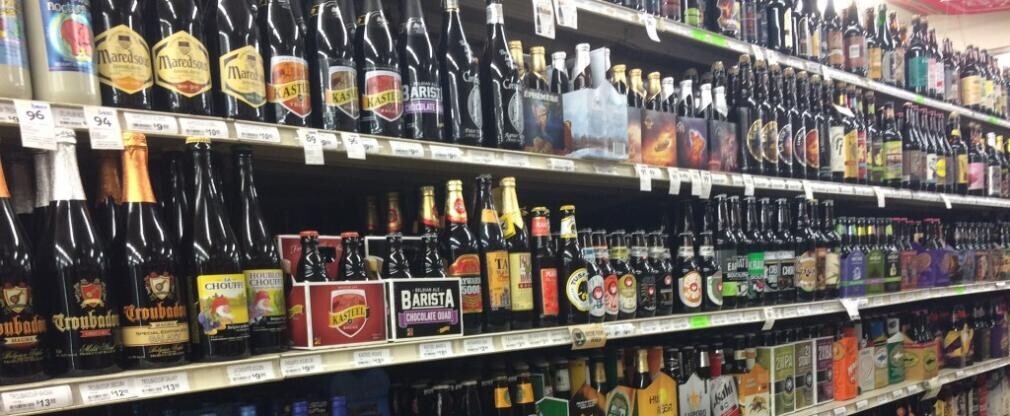
I love a good IPA like many hop-heads out there, and I have a few favorites. But after some time, the same ‘ole beer gets boring. So if I’m on the lookout for a new IPA to try, I’m not going to pick a standard version I can get all the time. What usually catches my eye is the style I love with a little twist. Maybe it’s an IPA with mango, or maybe I’m in the mood for a Habanero IPA. The point is, mix it up for once! Here’s what I mean with this set of ads.
Without the data, I can make a loose assumption that the ad in first position is there because their ad engagement is better than the ones below it. The ads in 2nd and 3rd position are obviously trying to use exact match keywords as their headline. Yes, the relevancy of our ads is necessary, but the first ad gives me something different. It gives me something the other ads aren’t offering. It gives me a reason why I should click on that ad instead of the others. All of these ads may be performing very well, but which ad captures your attention first?
Try something new in your ads. Try extended headlines if you haven’t done so yet. Add a countdown script to test building urgency. Test a less keyword-focus ad to showcase value messages. (*Gasp* Did he just say use less keywords?) Yes. Yes I did. You can’t be a PPC marketer without being a marketer. Test doing something that your competitors aren’t trying right now to make yourself stand out to your targeted audience.
Start Brewing Up Some Good PPC
Take the time to make sure you’re carefully crafting your campaigns. It doesn’t matter if you’re the first one out there. It matters that you have the right approach to how you’re marketing your product. A clean, thought-out strategy will bring PPC success that will make you want to crack one open to celebrate.
Joe Martinez likes to focus a good portion of his PPC efforts through conversion rate and landing page optimization to get more ROI with the traffic his clients already have at Granular Marketing. Joe has experience managing clients of all types of industries and sizes from one-shop local to international corporations.
Innovative SEO services
SEO is a patience game; no secret there. We`ll work with you to develop a Search strategy focused on producing increased traffic rankings in as early as 3-months.
A proven Allinclusive. SEO services for measuring, executing, and optimizing for Search Engine success. We say what we do and do what we say.
Our company as Semrush Agency Partner has designed a search engine optimization service that is both ethical and result-driven. We use the latest tools, strategies, and trends to help you move up in the search engines for the right keywords to get noticed by the right audience.
Today, you can schedule a Discovery call with us about your company needs.
Source:





